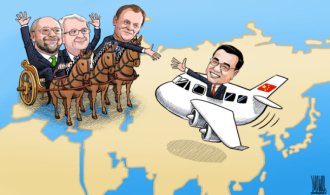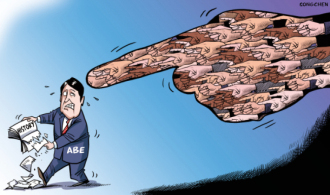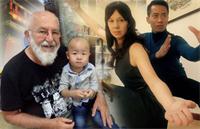Getting tougher on Japan
(China Daily) Updated: 2012-09-10 08:15
The Asia-Pacific Economic Cooperation meeting in Vladivostok, Russia, gave President Hu Jintao and Japanese Prime Minister Yoshihiko Noda an opportunity to meet, although just briefly. What they specifically chatted about is unknown to the public.
According to reports, Hu briefed the Japanese leader on China's stance regarding the countries' dispute over the Diaoyu Islands.
Attempts by the central and local governments in Japan to get their hands on China's Diaoyu Islands this year have driven the two countries apart and led to an emotional and political stalemate.
That's why high-ranking officials from the two countries have not met for months, despite Japan's attempts to arrange such meetings.
China, in the interest of the greater good, has listened to what Noda has to say, even going out of its way to receive his messenger late last month. But Japan has not acted in a reciprocal manner.
The chat between Hu and Noda, which reports say lasted for about 15 minutes, was merely symbolic. Whatever was said, members of the Japanese Cabinet are still expected to meet - possibly on Monday - to formally endorse a plan to put the Diaoyu Islands under the Japanese government's control. The government is trying to reach a deal to purchase three of the islets from their "private owner" for $25.5 million, say reports.
Japan's excuse for attempting to nationalize the Diaoyu Islands is that doing so will make the issue more manageable.
But it's only giving rise to more tension.
This is a challenge that China won't and shouldn't take lying down. Japan's "nationalization" plan binds China in no way, for the very reason that the islands are a part of Chinese territory.
Former Japanese Prime Minister Shinzo Abe, who is attempting to make a political comeback, showed not just indifference to China in a recent TV interview but outright scorn when he said China wouldn't try to take the Diaoyu Islands by force.
This makes it difficult for even moderates in China to resist a rising tide of anti-Japanese sentiments.
It is time for China to look at the cards it holds in its hand.
In 2010, when Japan pushed China on the Diaoyu Islands, China pushed back and temporarily suspended high-level contacts with Japan.
This country can and should do much more than that.
(China Daily 09/10/2012 page10)











